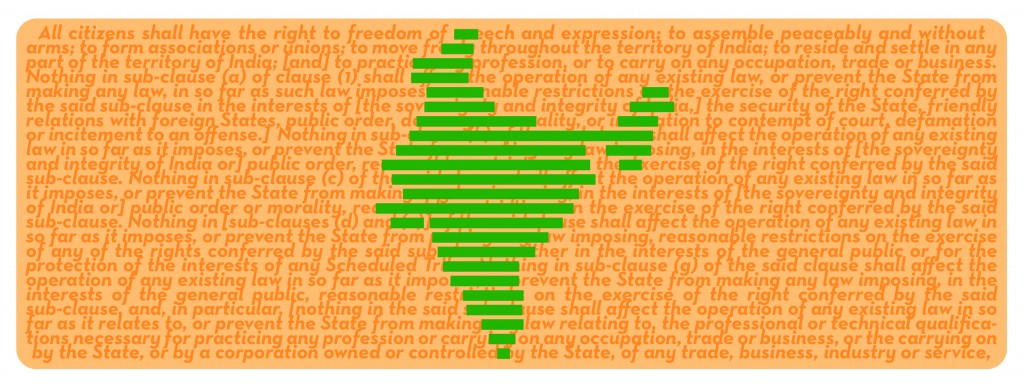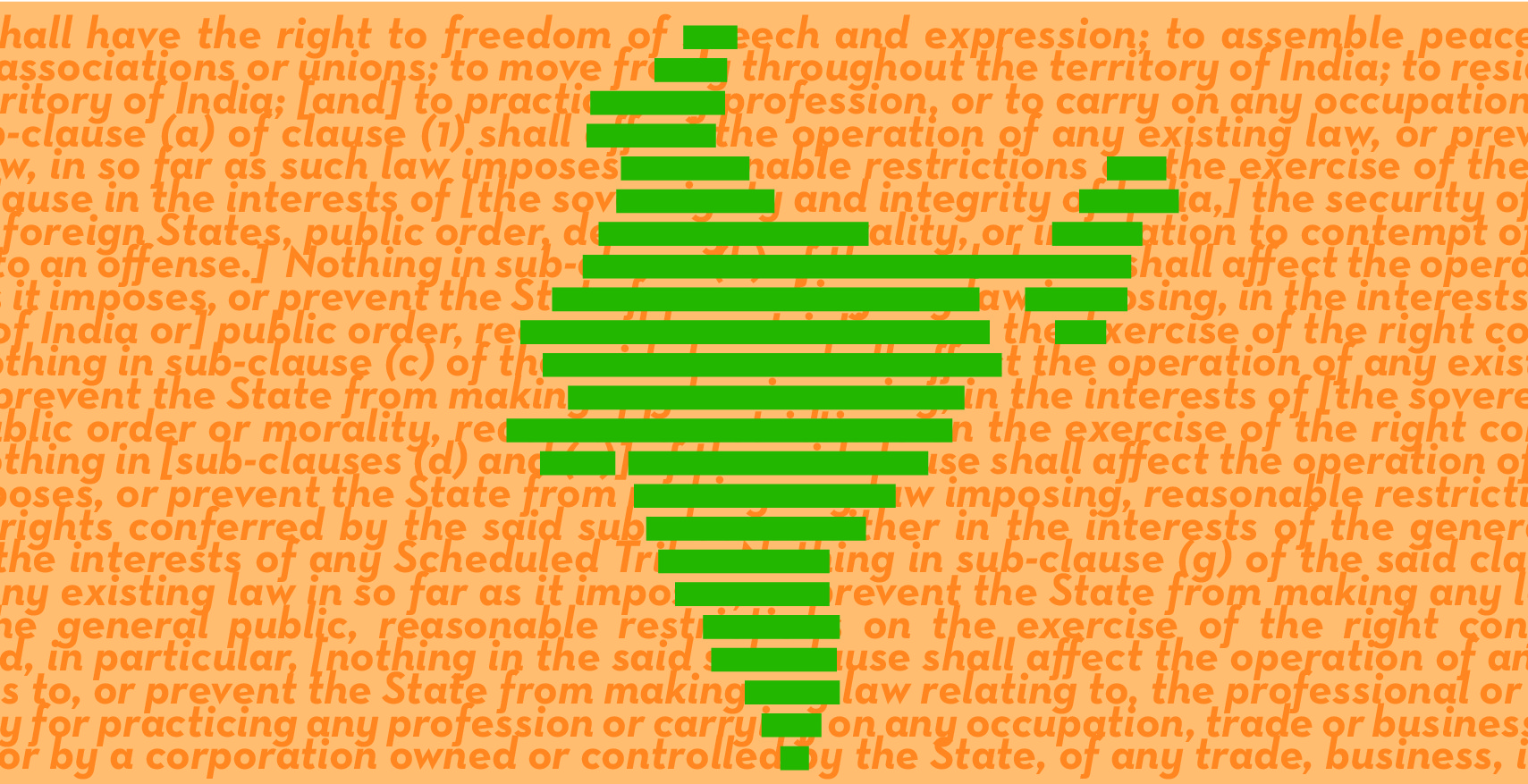Nine days after the publication of Salman Rushdie’s “The Satanic Verses” in 1988, India banned the importation and sale of the book. Four months later, in February 1989, Ayatollah Khomeini issued his infamous fatwa against Rushdie for the book’s allegedly anti-Islamic tones. A violent backlash against Rushdie and his supporters erupted worldwide, but Penguin Group, the book’s publisher, refused to withdraw the book except in countries where legal bans were imposed.
A couple of months ago, in the same week as the 25th anniversary of the ayatollah’s fatwa against Rushdie, Penguin India seemed to disregard its historical commitment to freedom of expression when it announced that it would withdraw all copies of Wendy Doniger’s “The Hindus: An Alternative History” from Indian bookstores. This was the outcome of an out-of-court settlement that concluded a four-year-long battle between the publishing house and a conservative Hindu civil advocacy group. The plaintiffs claimed that the book outraged “the sentiments of Hindus all over the world.”
The turnaround in Penguin’s attitude is representative of an alarmingly regressive development in India’s attitude towards freedom of expression. Free speech is no longer fighting a losing battle in India; it seems to have lost all will to fight. After experiencing years of political crackdowns on free speech, unassertive judicial action exacerbated by ambiguous laws and the lack of a broad-based campaign against censorship, India seems to have internalized undemocratic norms.
The brouhaha over Doniger’s book is hardly new: India has a long history of imposing bans on controversial works of art and literature. However, the significance of the Doniger case lies in the absence of an official ban. Penguin’s preemptive withdrawal of the book — even before the case was resolved in court — suggests a disturbing conclusion: Explicit politico-legal censorship in India is being replaced by an even more pernicious tendency to self-censor. “The Hindus” was the third such book to be pulped by established publishing houses in out-of-court settlements since December. The other two were also withdrawn in response to legal threats by offended private and corporate entities.
For decades, critics have decried the susceptibility of free speech to political manipulation in India. In blatant attempts to pander to vote banks, political parties are known to raise frivolous and uninformed objections to literature and art under the guise of protecting the sentiments of certain communities. When the government banned “The Satanic Verses,” the Indian National Congress Party was accused of attempting to appease the Muslim vote bank. The withdrawal of “The Hindus,” though not directly precipitated by any political action, was publicly celebrated by leaders of the right-wing Bharatiya Janata Party as a victory for the Hindu nationalist agenda — one of the foundations of its 2014 electoral campaign.
Nevertheless, vote bank politics is somewhat inevitable in the functioning of a competitive, multiparty democracy like India. The contest for votes may tempt parties to resort to demagogic tactics, but the positive offshoot is that social groups have a platform to voice their concerns in exchange for votes. Politically motivated censorship in the country is still problematic, but India’s judicial system, which is supposed to override undemocratic populist demands, is more culpable than India’s political institutions in the slow stifling of free speech.

Ambiguity characterizes the legal provisions that regulate freedom of expression. The civil advocacy group that called for a ban on “The Hindus” filed criminal suits against Penguin under Section 295a of the Indian Penal Code (IPC), which criminalizes acts that “outrage religious sentiments” of any community. Section 295a is one of many laws in the IPC that, through vague and imprecise wording, criminalize the expression of any opinions that “wound religious feelings of any person” or “promote enmity between classes.” In an open letter to the public explaining the seemingly premature withdrawal of its book, Penguin protested that such laws make it difficult for any publisher in India “to uphold international standards of freedom of expression without deliberately placing themselves outside the law.” In fact, the subjectivity of these laws has even resulted in the prosecution of cases that involve no mention of religion. For instance, in 2011, two young women were arrested in Mumbai under Section 295a for Facebook posts critical of the city’s shutdown after the death of regional politician Bal Thackeray. Most of these laws are relics of the colonial era and are perceived by many as outdated and a threat to modern India’s commitment to democratic values.
Defamation laws in India are also afflicted by a similar use of broad language. The IPC criminalizes defamation as punishable with up to two years of imprisonment. A few weeks before the withdrawal of “The Hindus” by Penguin, Bloomsbury India agreed in a similar out-of-court settlement to withdraw all copies of “The Descent of Air India” — an insider account of the decline of the state-owned airline. A court battle was launched after Praful Patel, the former aviation minister of India, filed a criminal defamation suit against the publishing house. Many have pointed out that although the book discusses Patel’s extensive role in the downfall of Air India, all its claims are backed by hard evidence, and had Bloomsbury pursued the case further, then the court might have decided in its favor. However, considering the ease with which influential litigants have managed to obtain court injunctions against books on the grounds of defamation in recent years, it is easy to see why Bloomsbury chose not to take its chances.
Broad language, especially in laws that impose reasonable limits on fundamental rights, would not be problematic if judicial systems gave these laws nuanced and carefully considered interpretations. However, the Indian judiciary fails here; lower courts across the country interpret these laws inconsistently, doling out injunctions without scrutinizing the fine print that narrows their scope. For example, in cases dealing with the censorship of opinions that “[hurt] religious sentiments,” proof that the offensive statements were made with malicious intent, and that the offended party was not driven by political motives, is required. These caveats are frequently ignored by lower courts, which are quick to ban even works written for purely academic purposes. A telling example is that of “The Lives of Sri Aurobindo,” an objective, well-researched work about an Indian spiritual leader by American scholar Peter Heehs. Ardent devotees of Aurobindo took offense at Heehs’ expressed skepticism of Aurobindo’s supposed supernatural powers and filed cases under Section 295a of the IPC, as well as a defamation suit, in a regional high court. The court responded by staying the book’s publication.
Fortunately, the Supreme Court of India has been far more proactive in defending free speech against ill-conceived litigation and has occasionally overturned bans imposed by lower courts. However, appeals can take years or even decades to wind through the interminable delays and tortuous processes of the Indian judicial system. These inefficiencies stifle media and press freedom by encouraging a culture of self-censorship. If powerful publishers like Penguin and Bloomsbury did not think fighting for free speech in courts was worth their time and money, then the prospects for small-time journalists, artists and authors, who have much fewer resources and less political capital at hand, are exceedingly bleak.
While the repression of free speech by Indian institutions through litigation and bans encourages self-censorship among the country’s press forces, the passivity of these institutions in defending free speech from attacks by radical groups reinforces another brand of unofficial censorship — one imposed through the sheer threat of mob violence. The Indian state has always struggled with the fine balancing act of maintaining national harmony while also preserving the independent identities of the diverse communities it governs. By repeatedly giving legitimacy to groups that brandish the “hurt sentiments” argument every time a contrarian opinion is voiced, it has reinforced deep-seated sectarian attitudes. Encouraged by the weakness of law and order in the country, civil society groups manage to silence creative voices by intimidation, vandalism and physical harassment.
When a group of young writers tried to express dissatisfaction with censorship by reading from “The Satanic Verses” on stage, they were asked to immediately flee the country in order to avoid bodily harm.
These crude tactics were seen in full force during the 2012 Jaipur Literature Festival. Fundamentalist Muslim groups threatened to incite violent protests if Rushdie, invited to speak at the event, was allowed to take the stage. Rushdie was forced to cancel his visit to the festival, as well as a virtual interview from London arranged as an alternative, after a mob of Muslim activists gathered at the festival venue and threatened to disrupt the proceedings. When a group of young writers tried to express dissatisfaction with the situation by reading from “The Satanic Verses” on stage, they were asked to immediately flee the country in order to avoid bodily harm. Penguin also mentioned the need to protect its employees against threats and harassment as one of the central reasons behind its withdrawal of “The Hindus,” highlighting the dangers of enabling radical elements in civil society to enforce censorship through bullying and violence.
What India needs is an organized movement large enough to influence political attitudes towards the defense of free speech. However, such a broad movement would be difficult to orchestrate because the crusade against censorship is led largely by the small, urban, English-speaking elite that invokes lofty democratic ideals in its arguments. The overwhelming majority of Indians, many of whom lack formal education, are unable to meaningfully access these conversations. Unless Indian civil society can unite in a populist effort to challenge the status quo, censorship in the country may escalate beyond the occasional book ban to the full-blown suppression of political dissent.
